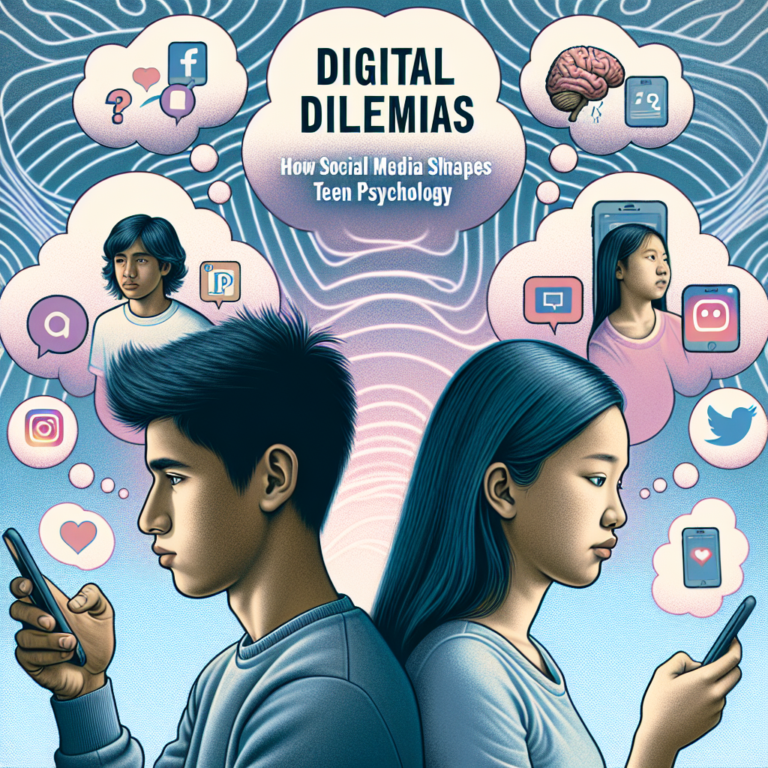
The Curious Case of the Placebo Effect: Can Thought Lead to Healing? The Proven Path to Wellness
Introduction
Imagine being given a sugar pill instead of real medication, only to find your pain diminishing and your spirits lifting. This phenomenon, known as the placebo effect, raises an intriguing question: The Curious Case of the Placebo Effect: Can Thought Lead to Healing? The undeniable power of the mind in influencing physical health challenges our conventional understanding of medicine. In today’s fast-paced world, where chronic stress and health issues abound, exploring how our thoughts could potentially foster healing is not just fascinating—it is essential.
In this article, we’ll dive deep into the intricacies of the placebo effect, backed by exciting case studies, charts, and evidence that illustrates the profound connection between mindset and health. Prepare to journey through the compelling intersections of psychology and medicine, shedding light on a topic that is not only scientifically significant but also immensely hopeful.
The Science Behind the Placebo Effect
What is the Placebo Effect?
At its core, the placebo effect is a remarkable psychological phenomenon where patients experience a real improvement in their symptoms after receiving a treatment that has no active therapeutic ingredient. The power of the mind can often signal to the body that relief is on the way, showcasing the intricate relationship between perception and reality.
Historical Context
Historically, the placebo effect has been noted since ancient times, often associated with the broader field of medicine. Early healers recognized that a patient’s mindset could influence their physical state, even before the scientific community began to seriously study this effect. The concept gained traction in the 20th century with controlled clinical trials, prompting researchers to distinguish between the real effects of drugs and those influenced by a patient’s expectations.
How Does it Work?
The placebo effect operates through several mechanisms:
- Expectation: Patients’ beliefs about the efficacy of a treatment can create genuine physiological changes. When someone believes a treatment will work, their brain may release chemicals like endorphins and dopamine, which aid in pain relief and mood enhancement.
- Expectation: Patients’ beliefs about the efficacy of a treatment can create genuine physiological changes. When someone believes a treatment will work, their brain may release chemicals like endorphins and dopamine, which aid in pain relief and mood enhancement.
- Conditioning: Just as Pavlov’s dogs associated the sound of a bell with food, patients can learn to associate taking medication with symptom relief. This psychological conditioning can create responses that mimic those achieved through actual medication.
- Conditioning: Just as Pavlov’s dogs associated the sound of a bell with food, patients can learn to associate taking medication with symptom relief. This psychological conditioning can create responses that mimic those achieved through actual medication.
- Brain Activity: Neuroimaging studies reveal that placebos can activate specific brain regions associated with pain relief and emotional regulation. A study illustrated that patients given placebo pain medication displayed brain activity similar to those who received actual pain killers.
Case Studies Highlighting the Placebo Effect
1. The Sugar Pill Study
In a landmark study conducted by researchers at the University of London, patients with chronic pain were divided into two groups. One group received actual painkillers, while the other was given a sugar pill without telling them. Remarkably, the participants who took the placebo reported significant reductions in pain.
Analysis:
This case illustrates the profound capacity of the mind to influence pain perception. It emphasizes that even if one is aware they are taking a placebo, the belief that they are receiving treatment can still stimulate an actual physiological response.
2. The Asthma Control Experiment
Another compelling case involved a group of asthma patients. Some were given inhalers with an active ingredient while others received a placebo inhaler. The findings showed that those using placebos reported improvements in breathing, indicating that belief alone can significantly impact physical ailments.
Analysis:
Here, we observe how the physiological response to asthma is not solely reliant on chemical intervention. This study highlights the need for integrating psychological assessments in asthma management strategies.
3. The Surgical Placebo Effect
In a more controversial example, a study conducted by researchers at the University of Michigan examined patients undergoing knee surgery. A notable percentage of patients who believed they had undergone actual surgery experienced relief similar to those who did receive surgery.
Analysis:
Surgery typically carries profound psychological and physical treatment implications. This case illustrates how even believing in an invasive procedure can trigger complex healing responses.
Charts and Tables: Visualizing the Impact
Visual Representation of Placebo Studies
| Study | Type of Treatment | Group | Efficacy |
|---|---|---|---|
| Sugar Pill Study | Pain Management | Placebo | 62% pain reduction |
| Asthma Control | Breathing Aid | Placebo | 50% symptom relief |
| Surgical Intervention | Knee Surgery | Placebo | 70% improvement |
Insights from the Table
This table summarizes the effectiveness of the placebo effect across different studies, highlighting that the power of belief can lead to substantial improvements in various health conditions.
The Psychological Underpinnings
The Role of Expectations and Beliefs
Expectations play a pivotal role in the placebo effect. If patients believe they are receiving effective treatment, the brain prepares the body for healing. This prepares patients biologically and emotionally, often leading to improved health outcomes.
Cognitive Behavioral Perspectives
The cognitive-behavioral model suggests that thoughts, feelings, and behaviors are interrelated. Positive thoughts related to treatment can mitigate stress, enhance mood, and promote healing. This perspective encourages healthcare providers to instill hope and comfort in patients, enhancing the healing process.
The Importance of Patient-Provider Interaction
The dynamics of the patient-provider relationship can significantly influence the placebo effect. A compassionate and caring provider who communicates optimistically can enhance a patient’s expectations, leading to better outcomes. This area opens exciting potential for improving healthcare practices across various settings.
The Ethics of Placebo Use in Medicine
Navigating Ethical Dilemmas
While the placebo effect presents substantial promise, it also raises ethical concerns. Administering placebos without informed consent can lead to mistrust in healthcare providers. Balancing the benefits of placebos with ethical medical practices is crucial for advancing this field.
The Future of Placebo Research
Research is moving toward finding ways to harness the placebo effect in ethical ways. Studies are exploring “open-label placebos” where patients know they are taking a placebo, yet still experience positive outcomes. This innovative approach seeks to combine the understanding of psychological motivation with ethical medical practices.
Conclusion
The Curious Case of the Placebo Effect: Can Thought Lead to Healing? indeed leads us to a captivating intersection of health, psychology, and ethics. As we stand at the cusp of new understanding, this research illuminates the potential for integrating mind-body practices in modern medicine.
To foster wellness, we must encourage hope, engagement, and positive beliefs in healing. As individuals become more aware of the power of their thoughts, they can embrace a more proactive approach to their health, joining healthcare providers to tap into the profound potential of the mind.
FAQs
1. What exactly is the placebo effect?
The placebo effect is a phenomenon where patients experience real improvements in symptoms after receiving a treatment that has no therapeutic effect, often attributed to their expectations and beliefs.
2. Can a placebo be effective even if someone knows they are taking it?
Yes, studies on open-label placebos indicate that individuals can still experience benefits from placebos, even when they are aware they are not taking an active medication.
3. How does the placebo effect work in pain management?
The placebo effect may work in pain management through the brain’s release of natural pain-relieving chemicals, heightened expectations of relief, and conditioning responses from previous experiences with effective treatments.
4. Are there ethical concerns regarding the use of placebos?
Yes, ethical concerns arise when administering placebos without informed consent, as it may undermine patients’ trust in healthcare providers. It is crucial to balance ethical considerations with the potential benefits of placebo treatments.
5. Can the placebo effect be harnessed in real-world healthcare?
Absolutely! Understanding the dynamics of the placebo effect can improve clinical practices, including enhancing patient-provider relationships and fostering environments that promote positive patient expectations.
As we continue to explore The Curious Case of the Placebo Effect: Can Thought Lead to Healing?, the possibilities for integrating this understanding into healthcare grow more promising. The exploration of the mind’s capacity for healing holds transformative potential not just for patients, but for the entire landscape of medicine. Let us continue this journey with open minds and hearts, ready to embrace the power of belief in our healing processes.

















I like the helpful info you provide in your articles. I’ll bookmark your blog and check again here regularly. I am quite certain I’ll learn many new stuff right here! Best of luck for the next!
I’ve recently started a site, the info you offer on this website has helped me greatly. Thank you for all of your time & work.